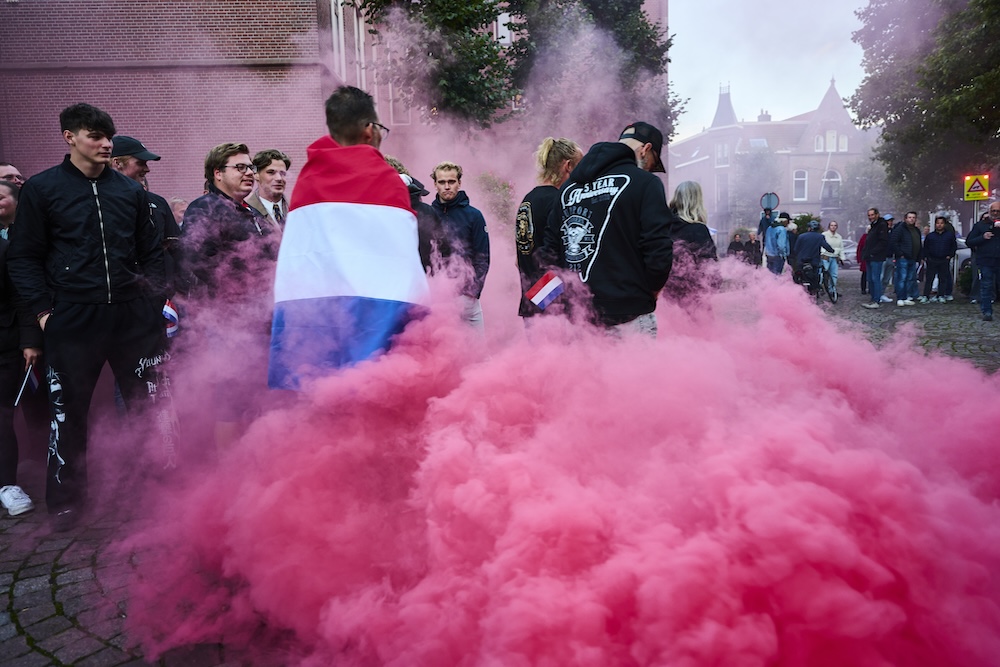Councils demand urgent action on asylum crisis after protests

Dutch local authorities have urged the caretaker government to act swiftly to address problems around accommodation for asylum seekers, warning that local councils are being left “on their own.”
In a letter to the cabinet, Sharon Dijksma, mayor of Utrecht and chairwoman of the local authorities association VNG, said the situation is spiralling out of control. “Councils are finding it harder and harder to do their jobs,” she wrote.
The VNG pointed to repeated overcrowding at the Ter Apel registration centre, incidents involving disruptive asylum seekers, and growing hostility in local debates about housing. Council meetings are being disrupted and local officials threatened, Dijksma said.
The letter was sent on Monday night, shortly after police intervened at a heated council meeting in Noordwijk about plans for a new asylum centre. Protesters set off smoke bombs and fireworks, and two journalists and a police car were pelted with eggs.
On the same day, Amersfoort shelved two proposed refugee units after information evenings sparked demonstrations and angry exchanges between locals and officials.
“We have repeatedly asked for help,” the letter to prime minister Dick Schoof stated.
The association warned that without intervention from the national government “the democratic rule of law is being undermined, the safety of residents and administrators is at risk, and municipalities’ ability to carry out their legal duties and honour agreements on providing accommdation for refugees is under severe pressure.”
The VNG said councils cannot be expected to resolve the crisis without support. It is demanding “political backing,” clearer and more consistent rules, and faster action to deal with asylum seekers who cause problems.
Local councils are required by law to accept and provide accommodation for their fair share of refugees, but local protests have led dozens to shelve plans.
Thank you for donating to DutchNews.nl.
We could not provide the Dutch News service, and keep it free of charge, without the generous support of our readers. Your donations allow us to report on issues you tell us matter, and provide you with a summary of the most important Dutch news each day.
Make a donation